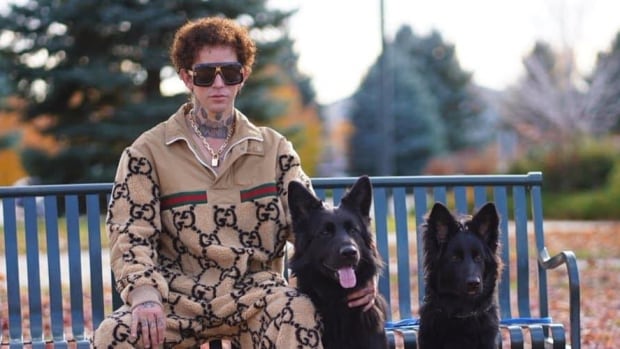
YouTube dog trainer criticized for 'harmful' training methods ahead of Toronto appearance
CBC
Some dog trainers are raising the alarm about a popular social media dog trainer ahead of his visit to Toronto this weekend.
Augusto Deoliveira, known online as the Dog Daddy, is based in the U.S. and bills himself as a trainer of "reactive, aggressive, and high-strung dogs." His YouTube channel has attracted 2.48 million subscribers.
Deoliveira, who is scheduled to offer classes in Toronto on Sept. 2 and 3, uses what many in the dog training community, including Andre Yeu, call "aversive conditioning" to stop a dog's unwanted behaviour.
Aversive conditioning can include using physical force against a dog or using pronged, shock, or choke collars. In videos on his YouTube channel, Deoliveira can be seen using leashes to suspend dogs by the neck, which critics say would likely cut off their source of oxygen.
In a YouTube video earlier this year addressing some such critiques, Deoliveira pointed to dogs that he worked with behaving as proof of his success.
"You can see in many of my videos, the majority of the dogs have been trained using the wrong methods, the wrong techniques, that will actually help get a dog under control," he said in a video dated March 2.
Yeu, the founder of When Hounds Fly, a dog training school in Toronto, told CBC Toronto Deoliveira's training methods are "harmful." And he's not alone. An online petition aimed at keeping Deoliveira from offering classes in Toronto has almost 2,000 signatures to date
"I get really concerned when I see that kind of training," Yeu said. "It produces a very provocative response … It doesn't actually help them and, in some cases, can make dogs more aggressive and more dangerous."
CBC Toronto reached out to Deoliveira to request an interview but did not receive a response.
Yeu advocates instead for positive reinforcement training.
Beverly McKee, manager of training and pet parenting support at the Toronto Humane Society (THS), says punishment-based training shouldn't be completely off limits. But in general, positive reinforcement is the method most certified trainers, including the ones that work at THS, would choose first, McKee said.
"If you've got a dog that's gonna run across the road in front of a streetcar to chase a cat, sure, you're going to grab that that leash and give the leash a good yank," she said. "Technically that's punishment, it's stopping the behaviour."
"Positive reinforcement training is evidence based. It works," she said. "We actually teach the dog what we want it to do instead of the other behaviour. The dog gets a really great experience out of it. They become very compliant, very joyful. They become our willing partner."
The Provincial Animal Welfare Services Act outlaws abusive behaviour against animals in Ontario, but animal welfare lawyer Jennifer Friedman says the act is open to interpretation.





















 Run 3 Space | Play Space Running Game
Run 3 Space | Play Space Running Game Traffic Jam 3D | Online Racing Game
Traffic Jam 3D | Online Racing Game Duck Hunt | Play Old Classic Game
Duck Hunt | Play Old Classic Game